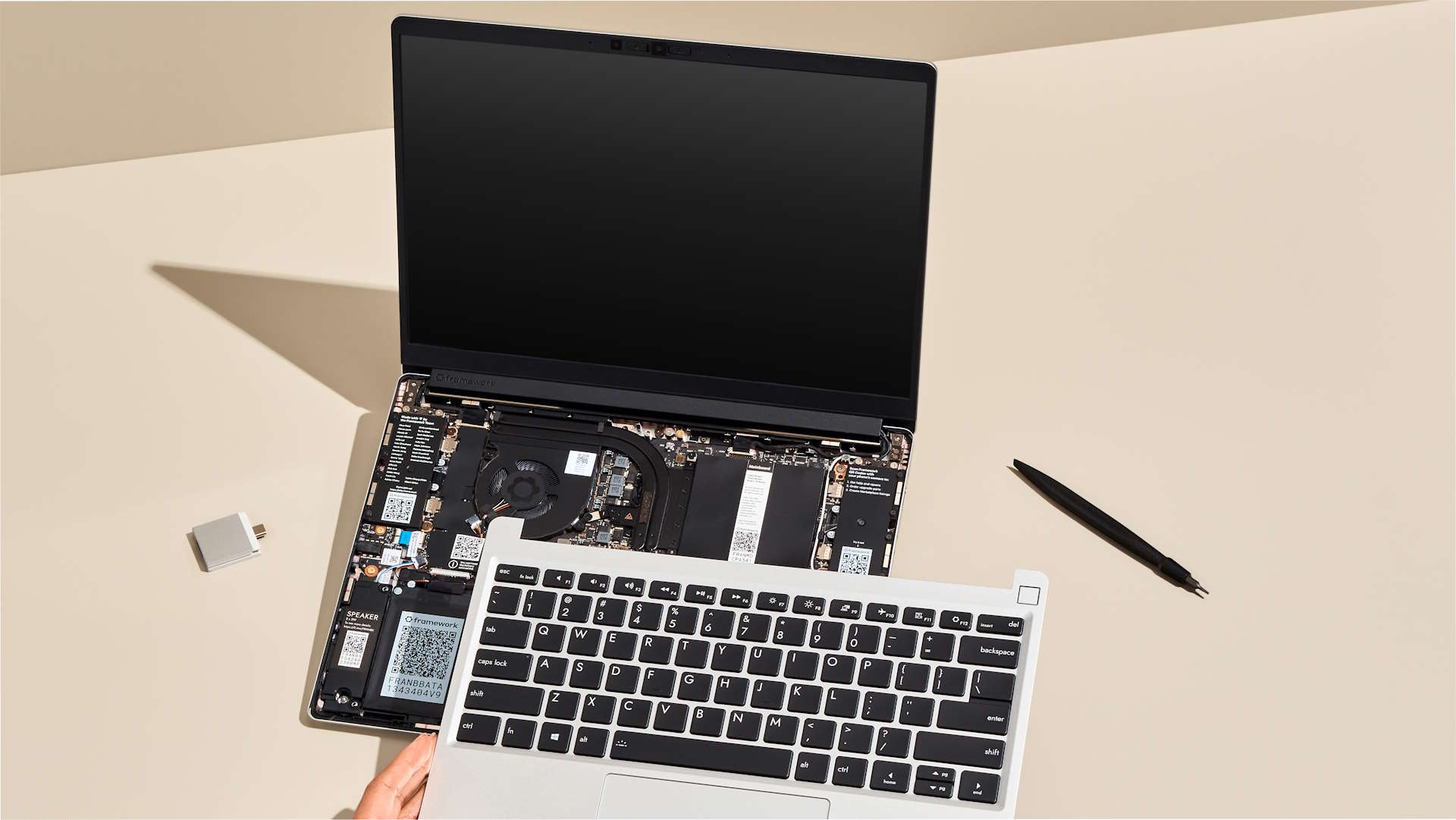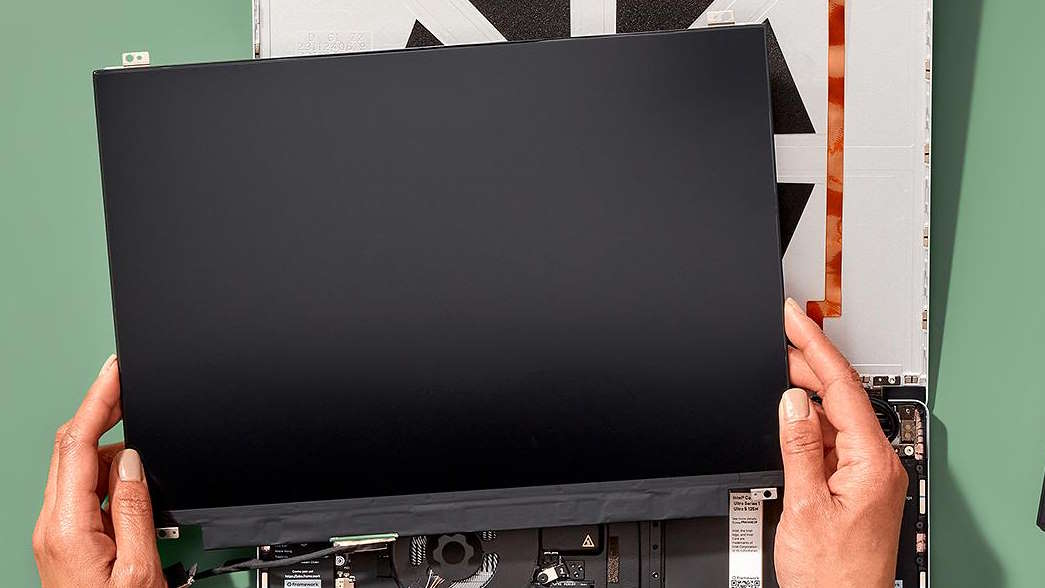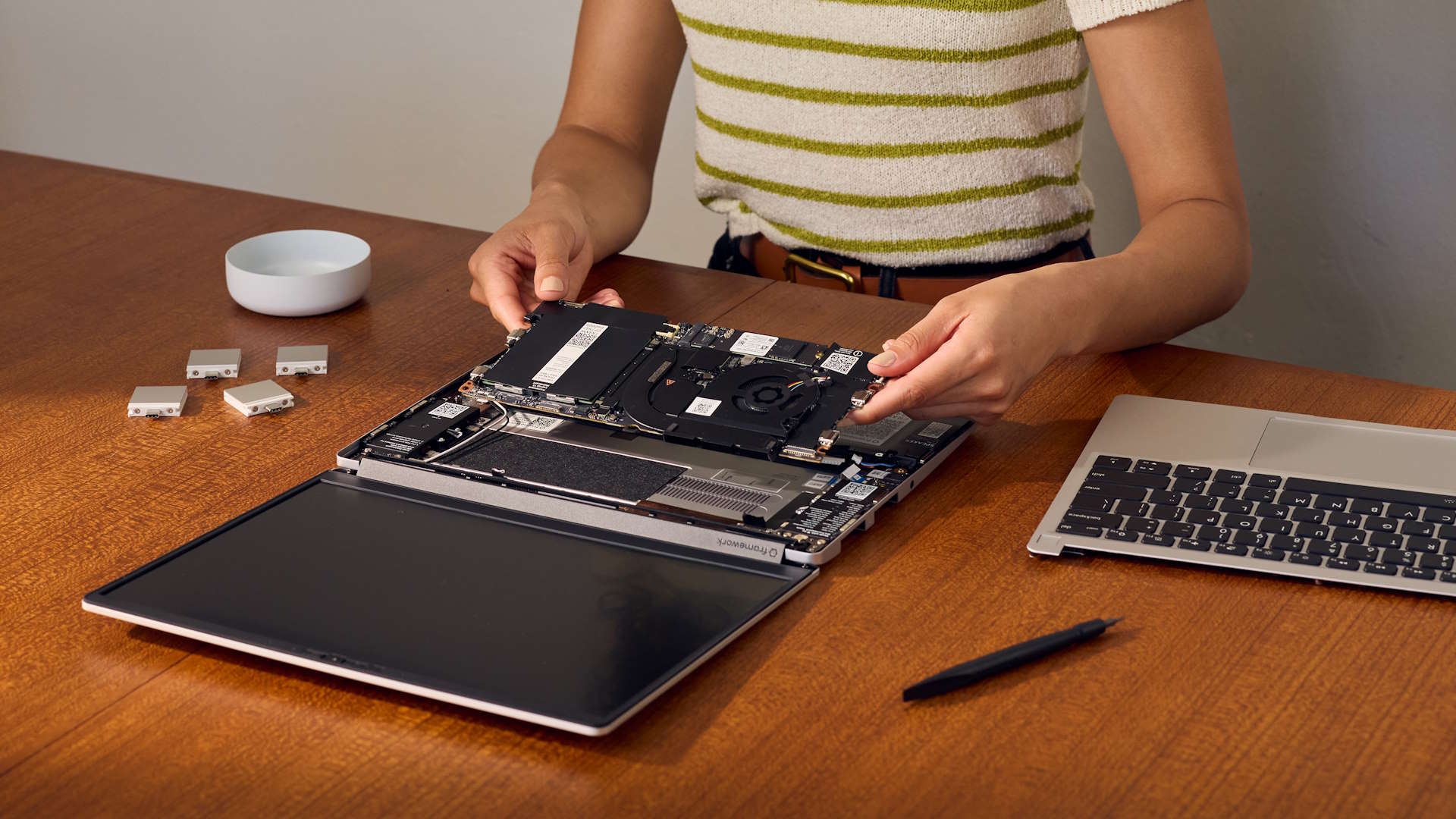The reason Framework laptops just keep getting better: 'We're blind to none of the feedback and we absorb it all'
And when it comes to the AI PC trend, Framework wants to "make sure that there are as many options as possible and we will continue to scope out new partnerships."

Framework's laptops just keep getting better. Not magically, of course, but it recently announced its new Framework 13 with a Core Ultra 7 laptop and mainboard. But while that new upgrade marks a welcome fourth generation of Intel-based Framework mainboard, it's the attention it gives its community that might have the biggest impact on the whole platform going forward.
"One of our biggest community pieces of community feedback is like, I'm looking for a high resolution display," Framework's Marissa Buyck tells me.
It's also been my main area of concern having used the 13-inch model as my daily driver for a while now, though I'm not so into having a higher resolution screen (though I do love me some extra pixel density), I want a lower response time. And that's why this has been the laptop upgrade I've been waiting for.
And from getting a quick hands on with the new 500 nits panel tucked away in a deserted corner of Computex, it is definitely a speedier screen. I don't have the exact timing, and I haven't tested it in any deeper way than a quick spin on the Windows desktop just before the lights go out in show halls, but Buyck states that "the response time is improved, and the refresh has improved as well from 60 to 120 Hz."
The second main area of concern for the community has been around cooling. The fans on my AMD-based, and previous Intel-based Framework 13 can get mighty chatty when it comes to really heavy workloads.
"We've worked with Intel specifically," says Buyck, "so that the cooling is better than ever, which is going to mean a quieter fan, quieter startups… all over better performance. We've also worked on the battery, so we've been tuning that, trying to improve it as much as possible.
"It's all about just eking out these performance improvements as much as we can. So yeah, a lot of it was working with Intel just to optimise, a lot of it was working with our own software and firmware team to make sure that we're making sure those fan curves are proper. And then the additional one is also just like, finding the right parts. Finding the right, tiny little parts that can help improve that experience."
Keep up to date with the most important stories and the best deals, as picked by the PC Gamer team.
So much of the effort, when it comes to tweaking the cooling levels and sourcing a new, higher resolution panel at a decent price ("a totally custom display, it's so expensive"), comes from listening to that community.
"We literally collect it all. We're blind to none of the feedback and we absorb it all."
And that also extends to user adjustable fan curves. It's something I've wanted in both the Framework 13, but also in the larger Framework 16, which ought to be able to cope with higher temps without sounding like it's got a second job as a leaf blower.



"It's something we're aware of," says Buyck. "But I can tell you fan noise—so quiet thermals that support you—and then also this display, those have been some of our biggest pieces of feedback. So, we're very aware and we're very focused on improving any areas we can see."
So, the reason Framework machines are getting better all the time is because of your feedback. Go you.
But in a world, and at a show seemingly obsessed with AI and now the AI PC, where does that leave Framework? Are we going to see a Ryzen AI 300 sequel to the current Ryzen 7000-series mainboard?

Catch up with Computex 2024: We're on the ground at Taiwan's biggest tech show to see what Nvidia, AMD, Intel, Asus, Gigabyte, MSI and more have to show.
"I can't reveal anything on our roadmap," says Buyck with depressing inevitability, "but I can say as we release products—whether it's the 13 inch, 16 inch—our entire mission relies on us supporting those products over time. So we will continue to support them with upgrades, with repair paths, with things that a customer can look forward to."
And Snapdragon?
"We want to make sure that there are as many options as possible, and we will continue to scope out new partnerships."
I've been told not to read too much into that statement, nor into Buyck's broad smile at the question. They're a smiley person, they tell me. But I can't help but feel a little excitement at the potential for an X Elite or X Plus mainboard upgrade for my Framework 13. Multi-day battery life, cooler performance, and still tangible gaming frame rates? Yeah, sign me up for that update. Call it my own community feedback.

Dave has been gaming since the days of Zaxxon and Lady Bug on the Colecovision, and code books for the Commodore Vic 20 (Death Race 2000!). He built his first gaming PC at the tender age of 16, and finally finished bug-fixing the Cyrix-based system around a year later. When he dropped it out of the window. He first started writing for Official PlayStation Magazine and Xbox World many decades ago, then moved onto PC Format full-time, then PC Gamer, TechRadar, and T3 among others. Now he's back, writing about the nightmarish graphics card market, CPUs with more cores than sense, gaming laptops hotter than the sun, and SSDs more capacious than a Cybertruck.

